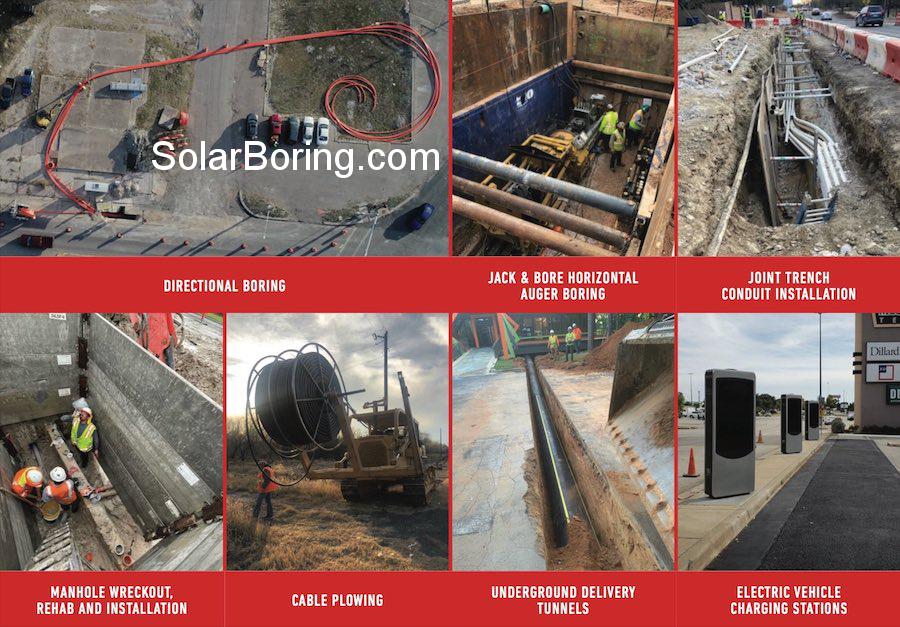Boring NAICS Code
The 2012 NAICS (North American Industrial Classification System) Code for horizontal drilling (directional boring) falls under category 237990 “Other Heavy and Civil Engineering Construction”.
Solar Boring NAICS | United States Census Bureau
Solar Boring NAICS | United States Census Bureau
The United States Census Bureau is a principal agency of the U.S. Federal Statistical System, responsible for producing data about the American people and economy. The Census Bureau is part of the U.S. Department of Commerce and the President of the United States appoints its director.
The Census Bureaus primary mission is conducting the U.S. Census every ten years, which allocates the seats of the U.S. House of Representatives to the states based on their population. The Bureaus various censuses and surveys help allocate over $400 billion in federal funds every year and it helps states, local communities, and businesses make informed decisions.
Solar Boring NAICS | North American Industry Classification System
Solar Boring NAICS | North American Industry Classification System
The North American Industry Classification System (NAICS) is the standard used by Federal statistical agencies in classifying business establishments for the purpose of collecting, analyzing, and publishing statistical data related to the U.S. business economy.
NAICS Codes
Solar Boring can be found under NAICS Code:
237990 Horizontal Directional Drilling (underground cable, pipeline, sewer/water installation)
Solar Boring NAICS | Official US NAICS Manual
Solar Boring NAICS | Official US NAICS Manual
The NAICS Manual defines category 237990 as follows
237990 Other Heavy and Civil Engineering Construction
This industry comprises establishments primarily engaged in heavy and civil engineering construction projects (excluding highway, street, bridge, and distribution line construction). The work performed may include new work, reconstruction, rehabilitation, and repairs. Specialty trade contractors are included in this industry if they are engaged in activities primarily related to heavy and civil engineering construction projects (excluding highway, street, bridge, distribution line, oil and gas structure, and utilities building and structure construction). Construction projects involving water resources (e.g., dredging and land drainage), development of marine facilities, and projects involving open space improvement (e.g., parks and trails) are included in this industry.
Illustrative Examples:
Channel construction
Land drainage contractors
Dam construction
Marine construction
Dock construction
Microtunneling contractors
Dredging (e.g., canal, channel, ditch, waterway)
Nuclear waste disposal site construction
Earth retention system construction
Park ground and recreational open space improvement construction
Flood control project construction
Railroad construction
Golf course construction
Subway construction
Horizontal drilling (e.g., cable, pipeline, sewer installation)
Trenching, underwater
Hydroelectric generating station construction
Tunnel construction
Solar Boring NAICS | 237990 SolarBoring.com
Solar Boring NAICS | 237990 SolarBoring.com
The definition of this code 237990 according to the NAICS: This industry comprises establishments primarily engaged in heavy and engineering construction projects (excluding highway, street, bridge, and distribution line construction). The work performed may include new work, reconstruction, rehabilitation, and repairs. Specialty trade contractors are included in this group if they are engaged in activities primarily related to engineering construction projects (excluding highway, street, bridge, distribution line, oil and gas structure, and utilities building and structure construction). Construction projects involving water resources (e.g., dredging and land drainage), development of marine facilities, and projects involving open space improvement (e.g., parks and trails) are included in this industry.
Horizontal Directional Drilling Contractors can also be classified as underground utility and excavation contractors.
An underground utility and excavation contractor is one whose services are limited to the construction, installation, and repair, on public or private property, whether accomplished through open excavations or through other means, including but not limited to, directional drilling, auger boring, jacking and boring, trenchless technologies, wet and dry taps, grouting, and slip lining, of main sanitary sewer collection systems, main water distribution systems, storm sewer collection systems, and the continuation of utility lines from the main systems to a point of termination up to and including the meter location for the individual occupancy, sewer collection systems at property line on residential or single occupancy commercial properties, or on multi occupancy properties at manhole or wye lateral extended to an invert elevation as engineered to accommodate future building sewers, water distribution systems, or storm sewer collection systems at storm sewer structures.
Underground utility and excavation contractors can install empty underground conduits in rights-of-way, easements, platted rights-of-way in new site development, and sleeves for parking lot crossings no smaller than 3/4 inches in diameter, provided that each conduit system installed is designed by a licensed professional engineer or an authorized employee of a municipality, county, or public utility and that the installation of any such conduit does not include installation of any conductor wiring or connection to an energized electrical system. An underground utility and excavation contractor shall not install any piping that is an integral part of a fire protection system beginning at the point where the piping is used exclusively for such system.
Solar Boring and its affiliates are fully licensed Directional Boring Companies as well as an Underground Utility and Excavation Contractors.
Solar Boring NAICS | Standard Industrial Classification
Solar Boring NAICS | Standard Industrial Classification
The Standard Industrial Classification SIC is a system for classifying industries by a four-digit code. Established in the United States in 1937, it is used by government agencies to classify industry areas. The SIC system is also used by agencies in other countries, e.g., by the United Kingdom's Companies House.
The NAICS replaced the SIC in 1997. Federal statistical agencies use NAICS for the collection, tabulation, presentation, and analysis of economic statistics. There will be no further revisions of the SIC, which was last updated in 1987.


